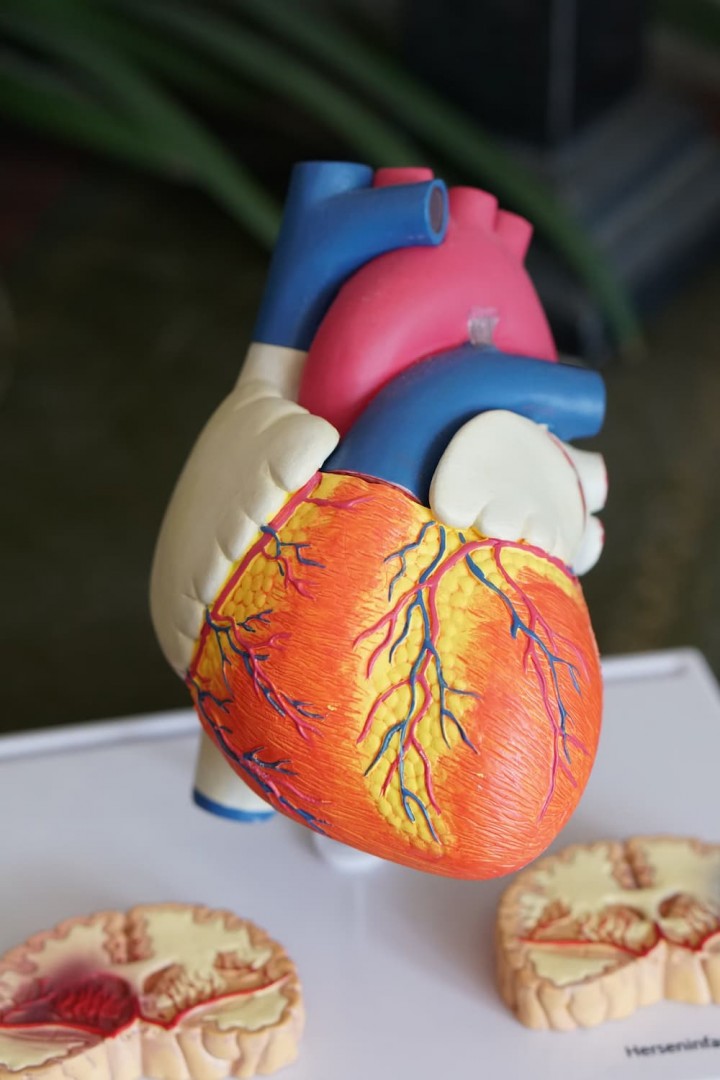
What you may think is a simple sore throat is sometimes strep throat, which requires immediate treatment because it can progress to an inflammatory disease of the heart that can change your body's autoimmune response and kill you. Rheumatic heart disease is a serious condition that worsens over time. Explore its causes and symptoms, as well as what qualifies it as a medical emergency.
What is Rheumatic Heart Disease?
Rheumatic heart disease is a serious condition that can develop after having acute rheumatic fever (ARF) or scarlet fever, which is caused by streptococcal infections resulting from exposure to Streptococcus pyogenes, a species of gram-positive bacteria. Rheumatic fever is an autoimmune disease caused by a complication of strep throat, and it happens when the body's immune system attacks the tissues in your heart and damages the aortic valves. Damaged heart valves can lead to rheumatic heart disease.
With each heartbeat, heart valves help blood flow through the chambers of the heart. When rheumatic fever causes damage to heart valves, they are unable to open and close properly, causing blood to flow in the wrong direction and eventually leading to heart failure.
Addressing strep throat symptoms, which usually occur a month or 15 years before rheumatic heart disease manifests, is key to preventing heart valve damage.
What are the Symptoms of Rheumatic Heart Disease?
The symptoms of rheumatic heart disease differ from person to person. They can be so mild that you won't even notice them. If you start experiencing any of the following symptoms with more regularity, see a cardiologist right away:
- Shortness of breath
- Fatigue
- Fever
- Chest pain
- Heart murmur
- Joint pain or swollen joints
- Involuntary movements of upper or lower limbs
- Twitching of facial muscles
- Abdominal pain
- Vomiting
The primary symptoms of heart failure are the first two listed above, which shouldn't be ignored. Recurrent episodes of rheumatic fever compromise quality of life as they increase the likelihood of developing rheumatic heart disease.
How is Rheumatic Heart Disease Diagnosed?
If you are experiencing any of the above symptoms, it's important to see a doctor right away. They will likely get your medical history and perform a physical examination, such as listening to your heart with a stethoscope. They may also order a battery of tests, such as the following:
Chest X-ray
A chest x-ray is often one of the first tests used to help diagnose rheumatic heart disease. It can help your doctor see if you have any fluid around your heart, which is a sign of the disease. It can also help to determine the size and shape of your heart, which can give your doctor a clue about whether or not you have rheumatic heart disease.
Echocardiogram
An echocardiographic diagnosis uses sound waves to create a picture of the heart. It allows the doctor to see how the heart muscle works and identify an abnormal heart rhythm caused by rheumatic fever. An echocardiogram can also help to determine how severe rheumatic heart disease is and whether or not heart valve surgery is needed.
Blood Tests
Rheumatic heart disease patients usually undergo a blood test that allows the doctor to look for certain antibodies in the blood that are associated with rheumatic heart disease. If these antibodies are found, it confirms that the person has rheumatic heart disease.
Cardiac Magnetic Resonance Imaging (MRI)
Cardiac MRI is an imaging technique that can be used to diagnose rheumatic heart disease. It can help to identify the presence of damage to the heart valves. This information can be used to guide treatment decisions and to monitor the progress of the disease.
Who is at Risk of Complications?
Most, if not all, rheumatic heart disease patients have a history of ARF or strep throat infections that have weakened their immune response. Heart failure is a common complication of rheumatic heart disease, which is caused by a leaky valve in the heart, resulting in aortic regurgitation or blood to leak back into the heart. It can also lead to the following cardiovascular complications:
- Stroke
- Atrial fibrillation
- Permanent damage to heart valves
- Bacterial endocarditis
- Mitral valve disease
Rheumatic heart disease also increases the risk of pregnancy complications. Women who have had rheumatic fever should consult their healthcare provider before becoming pregnant to avoid the risk of premature birth, stillbirth, or having a child with congenital heart disease. In severe cases, rheumatic heart disease can result in death.
Source: World Heart Federation
What Treatment Options are Available for Rheumatic Heart Disease?
There is no cure for rheumatic heart disease, but there are treatments that can help manage the symptoms and improve your quality of life. These treatments may include:
- Antibiotic prophylaxis
- Heart surgery to repair or replace damaged heart valves
- Heart rhythm medications
- Oxygen therapy
- Lifestyle changes, such as quitting smoking and eating a healthy diet
These treatment options are aimed at relieving symptoms and preventing further damage to the heart.
What Can Be Done to Prevent Rheumatic Heart Disease?
You can do a few things to help prevent rheumatic heart disease from occurring in the first place. Regular check-ups and treatment for infections or inflammations of the heart, lungs, or heart valves are examples of primary prevention. Another precaution is to avoid contact with people who have an active strep infection. If you have had rheumatic fever in the past, taking precautions to avoid getting it again is a secondary prevention method. Be sure to take your medications as directed and visit your doctor on a regular basis.
If you think you or someone you know may have rheumatic heart disease, it is important to see a doctor as soon as possible and undergo a physical exam. Correct diagnosis and treatment can help prevent serious complications.









